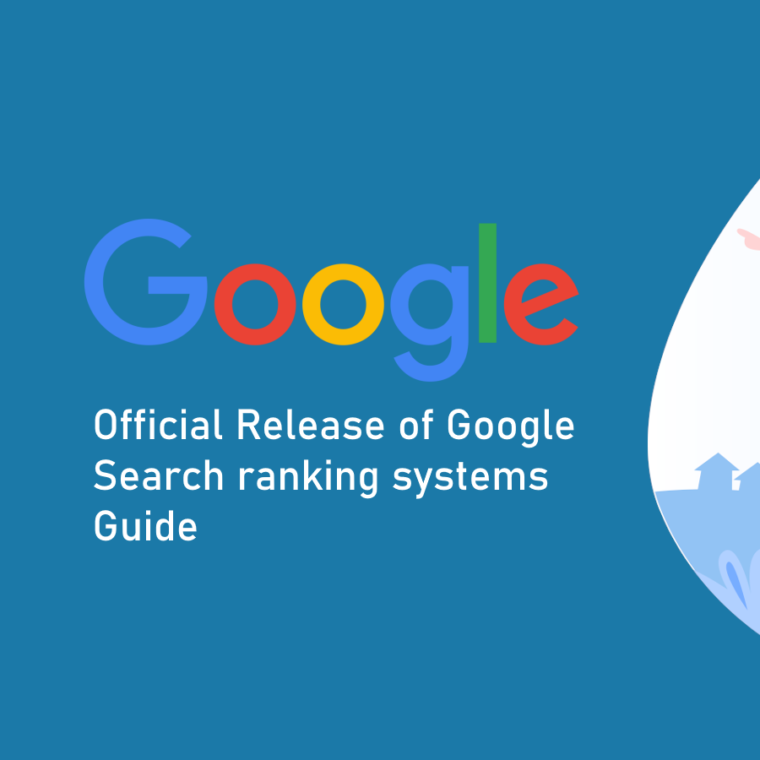Why Check Your Google Rankings? A Quick Guide
Is your website truly visible online? Understanding and monitoring your Google rankings is not just a technical task, but a vital business strategy in today's digital landscape. It directly impacts your online visibility, your traffic, and, ultimately, your bottom line.
The Google algorithm is a complex beast, constantly evolving and refining its methods for presenting the most relevant and useful information to its users. A Google rank, in its simplest form, is the position your website holds within Google's search results, and this position significantly influences whether users even see your site.
To illustrate the importance, consider the following: If you're not ranking in the top three positions for the keywords that matter to your business, your click-through rate (CTR) will likely suffer dramatically. The higher your rank, the more clicks you'll receive; its that simple.
- Kelly Evans Net Worth Salary Latest Updates Insights
- Margaret Buckley Life Legacy Facts You Need To Know
| Aspect | Details |
|---|---|
| Definition | Google rank refers to the position of a website in Google's search results page (SERP). |
| Significance | Determines website visibility and the likelihood of users clicking through to a site. A higher ranking increases organic traffic. |
| Ranking Factors | Google's algorithms analyze billions of webpages, considering: content relevance, user experience, mobile-friendliness, site speed, backlinks, and more. |
| Impact of Top Rankings | Websites in the top 3 positions receive a significantly higher percentage of clicks. |
| Tools for Checking |
|
| Real-time Analysis | Many SERP checkers provide rankings for specific keywords in real time. |
| Optimization | Improve content quality, enhance user experience, use relevant keywords, and build high-quality backlinks. |
There are several approaches to checking where your website stands in Googles search results page (SERP). One method, often overlooked for its simplicity, is the manual search. Simply type your target keywords into Google and note your websites position within the organic search results. While this offers an immediate snapshot, the results can be influenced by your location, search history, and even the device you're using. To partially neutralize ranking biases, use private browsing mode, delete/disable cookies, or employ a private search engine.
Fortunately, numerous SERP checker tools are available to provide more comprehensive and, importantly, real-time data. Tools like SEMrush, Ahrefs, and Seomator are designed to accurately display your websites ranking for particular keywords. You enter your domain and the specific keywords you want to track, and the tool will reveal your current ranking, and often, the top 100 URLs ranking for the same keywords.
These tools offer detailed data beyond just position. For instance, you can see the search volume for each keyword, get traffic forecasts, and examine the features that appear in the SERP (like featured snippets or knowledge panels). Some tools also provide data on local and global search volumes across platforms like Google, Bing, Yahoo, and even YouTube, which is essential if your business has a significant video presence.
Beyond simply knowing your ranking, these tools can provide deeper insights. The Google SEO checker can also analyze how your website performs based on Google Pagespeed metrics. This feature, often powered by the official Google Lighthouse platform, helps you assess how well your site performs regarding loading speed, user experience, and overall web page quality.
The process is usually straightforward: you enter your URL, and the tool provides insights into how Google views your website. This includes identifying potential areas for improvement to enhance your ranking, improve site speed, and ultimately, provide a better user experience.
Tracking your keyword rankings on Google is a key component of any SEO strategy. There are two primary methods recommended: Utilizing SEO tools and the manual method. While the manual method, involving searching on Google and noting your position, provides a quick overview, its less reliable due to personalized search results. Also most of the methods mentioned above (private mode, delete\/disable cookies, private search engines, disable personal web search) only partially neutralize rankings, because googles ads will still remain at the top of the page.
SEO tools provide more sophisticated features. For instance, Google Search Console is a free tool offered by Google that enables you to monitor your sites performance in search results, identify technical issues, and analyze keyword-specific data. Similarly, SEMrush offers a comprehensive suite of SEO tools including keyword research, backlink analysis, and competitor analysis.
Moreover, the tools provide data on geographical rankings, displaying rankings from specific cities or regions, and even separate data for mobile and desktop searches. This granular data is crucial for businesses targeting local markets or for understanding how their website performs across different devices.
The process of checking and tracking Google rankings is, in many ways, automated. Tools like rank trackers streamline the process, automatically monitoring your search engine ranking positions for specified keywords over time. These tools can also alert you to any major shifts in your rankings, allowing you to proactively address any issues and adapt your SEO strategy.
When it comes to actually improving your Google rankings, its more than a one-step process. It is a continuous effort. Here are a few easy steps that can enhance your Google rankings.
- Keyword Research: Identify relevant keywords that your target audience uses. Use tools like Google Keyword Planner, SEMrush, or Ahrefs to discover high-volume, low-competition keywords.
- On-Page Optimization: Optimize your web pages by including your target keywords in the title tags, meta descriptions, headings, and content of your pages. Ensure that your content is well-written, engaging, and provides value to the reader.
- Content Quality: Produce high-quality, original content that is relevant to your target audience and the keywords you are targeting. This includes blog posts, articles, videos, and infographics.
- Off-Page Optimization: Build high-quality backlinks from authoritative websites. This will signal to Google that your website is a trustworthy source of information.
- User Experience (UX): Ensure that your website is easy to navigate, mobile-friendly, and fast loading. Improve your site's design and make sure the user experience is seamless.
- Technical SEO: Address any technical issues that may be impacting your rankings, such as broken links, slow page speed, or duplicate content.
Google's algorithms are designed to analyze many factors and signals. These factors, combined, help Google present the most relevant and useful results. Some of the key elements the algorithm examines include content relevance, user experience, mobile-friendliness, page speed, and backlinks.
SEO ranking checkers such as Ahrefs or SEMrush are sophisticated tools that evaluate your keyword and URL standings on Google search across many countries, making them vital for both desktop and mobile. They also present an overall website visibility score, show page position in search results, keyword search volume data, snippet details, and competition. The tool's features provide comprehensive data on your google rankings, along with their SERP features, search volume, traffic forecast, and more. These insights enable you to make data-driven decisions to improve your SEO strategy.
Understanding the Google search ranking systems is critical to success in today's digital environment. Google uses complex, automated systems to assess hundreds of billions of web pages and other digital content to present the most relevant, useful results, all in a fraction of a second. Google uses automated ranking systems that look at many factors and signals about hundreds of billions of web pages and other content in our search index to present the most relevant, useful results, all in a fraction of a second.
Rank trackers automate the process of checking search engine ranking positions for specific keywords over time, providing a clear understanding of how your website's performance evolves. You can analyze your keyword rankings to identify which keywords you rank for, your position in search results, the search volume for each keyword, and how much traffic they generate. This data is essential for making informed decisions about your SEO strategy.
A Google keyword ranking is the position of your website in Google when a user searches for that specific phrase or keyword. A ranking of 1 means you're at the top of the search results, while a ranking of 11 means you are on the second page of Google, as most pages display 10 results.
However, while keeping an eye on your rankings is important, it is equally important not to obsess over them. Google constantly adjusts its search results. These fluctuations, especially outside of the first page, are common. It's also crucial to remember that factors like search history and location can affect your ranking, so don't necessarily panic if your rankings appear different on other devices or in other locations.
Ahrefs SERP checker provides an accurate ranking difficulty score and detailed SEO stats for the top 10 search results, giving you a comprehensive view. This allows you to make informed decisions based on a deep understanding of your website's position in the search landscape.
Evaluating your backlinks and analyzing your authority score is also important. Use tools that assess the number and quality of backlinks pointing to your site. It also identifies the authority score of the referring domains, which is crucial for understanding the overall strength of your website's backlink profile. By taking action on your SEO, you can ensure that your website achieves the top rankings.
The Pagesmeter SEO checker analyzes whether your website meets the criteria search engines use to determine your website's ranking in search results. You can enter your domain and email address to get started. The tool provides a clear view of where you stand in Google's search rankings by quickly analyzing your domain and showing the top 500 results. The results are very detailed, giving you the information to act and create the perfect website and SEO.
Google Trends is also an important tool. It is used across the world to display the trends of the moment, by newsrooms, charities, and more to visualize data. They have a project that works with designers around the world to tell stories with data and make the results open source, giving you the best trends to follow.
Google's ranking systems are designed to identify information that people find useful and reliable. The search features not only help users make sense of the information they are seeing online but also help website owners better understand their performance in search results.



Detail Author:
- Name : Dell King
- Username : zulauf.isadore
- Email : douglas.angie@hotmail.com
- Birthdate : 2001-09-02
- Address : 24254 Christiana Ridges Apt. 069 Keeblerview, WI 11537-4333
- Phone : +1-979-529-2210
- Company : Harris, Beier and Cummings
- Job : Woodworking Machine Setter
- Bio : Unde quo quaerat sunt hic similique quos sunt. Unde sit perferendis eum. Quas quo modi facilis qui quia nihil id ut. Sapiente fuga vero quae atque qui.
Socials
facebook:
- url : https://facebook.com/alta.jacobson
- username : alta.jacobson
- bio : Fuga aspernatur enim commodi amet est commodi.
- followers : 4508
- following : 2848
instagram:
- url : https://instagram.com/jacobson2005
- username : jacobson2005
- bio : Aut impedit in aliquam. Sint eius molestias eius.
- followers : 2610
- following : 2904
tiktok:
- url : https://tiktok.com/@jacobsona
- username : jacobsona
- bio : Enim architecto fuga nisi eos dolor molestiae natus.
- followers : 2212
- following : 2641